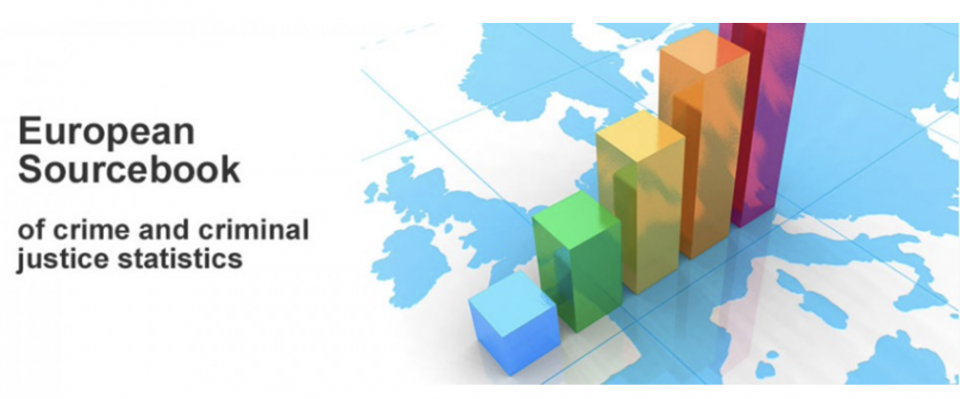Working Group reports: European Sourcebook Working Group (2020–2025)
 Period Covered: 2020–2025
Period Covered: 2020–2025Executive Summary
The European Sourcebook Working Group (ESWG) has successfully maintained its mission of producing comprehensive pan‑European crime and criminal justice statistics during the 2020–2025 period. Key achievements include the publication of the sixth edition of the European Sourcebook, the launch of an innovative publication strategy for the seventh edition, and a collaboration with the Council of Europe to convene a conference, the proceedings of which were published in an open-access volume exploring three decades of crime statistics, methodology, and policy.
Background and Mission
The ESWG is a group of experts dedicated mainly to producing the European Sourcebook of Crime and Criminal Justice Statistics. This publication provides comprehensive data across all criminal justice stages, including police, prosecution, courts and conviction, prison, probation, and victimization surveys, with particular emphasis on transparency through detailed metadata.
Established in the mid-1990s under the Council of Europe, the group published a first edition of the European Sourcebook in 1999. Since 2000, it has operated as an independent international expert group with institutional support, formally becoming a working group of the European Society of Criminology in the late 2000s. The group's methodology has gained international recognition, with the UN Crime Trends Survey (UN-CTS) adopting our metadata framework for counting rules and offence definitions in the mid-2000s.
Major Accomplishments (2020-2025)
- Publication of the Sixth Edition (2021). The ESWG published the sixth edition of the European Sourcebook in 2021, covering the years 2011-2016. As all the previous editions, it is freely downloadable here. The publication includes comprehensive comparative data and metadata from 42 European countries, with both raw data and key findings also available separately.
- Innovation in Publication Strategy: Seventh Edition (2024-2025). Following the publication of the sixth edition, the group initiated the development of the seventh edition with a new approach. Recognizing the recurring challenge of delays due to the complexity of collecting data from a large number of countries, we adopted a dynamic publication model for the first time. Rather than waiting for complete responses from all countries, we decided to release a first draft edition once a critical mass of country data had been gathered. This first draft of the seventh edition was published in late 2024, and we are currently engaged in an ongoing update process to progressively incorporate the remaining data. This more flexible publishing model allows us to better serve the needs of policymakers and researchers who rely on timely comparative data, significantly improving data availability while maintaining quality and comprehensiveness.
- Major International Conference and Publication. In collaboration with the Council of Europe, with EU support, the ESWG collaborated to the organisation of the conference titled “Three Decades of Crime and Criminal Justice Statistics in Europe: Methods, Trends and the Impact on Policy Making”. Although initially scheduled to take place in person at the Council of Europe's premises, the event was held online due to pandemic-related restrictions, yet proved highly successful. The proceedings, edited by Marcelo F. Aebi and Lorena Molnar, have since been published as an open access volume. This collection brings together leading comparative criminologists to reflect on thirty years of crime measurement across Europe, examine key methodological challenges, and analyse major crime trends, including the emergence of cybercrime and the impact of COVID-19 on criminal behaviour. Through diverse case studies from European countries, the book illustrates how robust statistical evidence has informed policymaking. The volume features contributions from Eurostat, UNODC, and the EU Fundamental Rights Agency on enhancing international harmonization of crime statistics. It not only charts the evolution of crime and criminal justice data collection but also identifies future opportunities and challenges in ensuring comparability across European jurisdictions. This publication should prove useful for researchers, practitioners, and policymakers working in the field of Comparative Criminology.
- Contributions to the European Society of Criminology. Throughout the reporting period, the Head of the Working Group contributed to the abstract reviewing process and the assembly of panels in the areas of Comparative Criminology and related fields for the annual conferences of the ESC.
